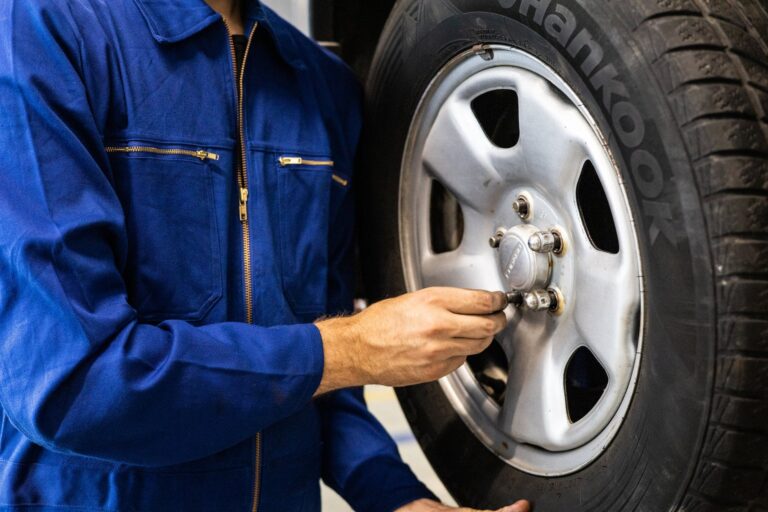The Importance of Oil Changes
To keep your Hyundai vehicle running smoothly and efficiently, regular oil changes are essential. Understanding the basics of engine maintenance and the benefits of regular oil changes can help you make informed decisions about your vehicle’s care.
Engine Maintenance Basics
The engine is the heart of any vehicle, including Hyundai models. It consists of numerous moving parts that require proper lubrication to function optimally. Engine oil plays a critical role in this lubrication process. It helps to reduce friction between the moving components, preventing excessive wear and tear. Additionally, engine oil helps to dissipate heat, keeping the engine operating at a safe temperature.
Over time, engine oil breaks down and becomes contaminated with dirt, debris, and other impurities. This can compromise its ability to lubricate effectively and protect the engine. Regular oil changes remove the old, dirty oil and replace it with fresh oil, ensuring that the engine continues to operate smoothly and efficiently.
Benefits of Regular Oil Changes
Regular oil changes offer several important benefits for your Hyundai vehicle:
- Engine Performance: Clean oil helps maintain the engine’s performance by reducing friction and wear on the moving parts. This results in smoother operation and improved power delivery.
- Engine Longevity: By providing proper lubrication, regular oil changes help to extend the life of your Hyundai’s engine. This can save you from costly repairs or premature engine replacement.
- Fuel Efficiency: Fresh oil reduces friction in the engine, allowing it to work more efficiently. This can lead to improved fuel economy, saving you money at the pump.
- Cleaner Engine: Over time, engine oil can accumulate sludge and deposits, which can impair engine performance. Regular oil changes help to keep the engine clean, preventing the buildup of these harmful substances.
- Warranty Compliance: Following the recommended oil change schedule helps to maintain your vehicle’s warranty. Many manufacturers, including Hyundai, require regular oil changes to ensure warranty coverage (North Freeway Hyundai).
It is important to note that the recommended oil change intervals may vary depending on the specific Hyundai model and the type of oil used. To determine the optimal oil change schedule for your vehicle, refer to your owner’s manual or consult with a trusted Hyundai service center.
By prioritizing regular oil changes for your Hyundai vehicle, you can ensure that your engine remains in top condition, providing reliable performance and longevity. Don’t overlook the importance of this simple yet crucial maintenance task, as neglecting oil changes can lead to engine damage, decreased performance, and potentially voided warranties.
Oil Change Intervals for Hyundai Vehicles
To ensure the optimal performance and longevity of your Hyundai vehicle, it is crucial to follow the recommended oil change intervals. Regular oil changes are essential for maintaining engine health and maximizing fuel efficiency. In this section, we will explore the recommended mileage and time intervals for oil changes in Hyundai vehicles, as well as the Hyundai Oil Change Reminder System.
Recommended Mileage and Time Intervals
For most Hyundai vehicles, including popular models like the Elantra, Sonata, and Tucson, the recommended interval for oil changes is every 7,500 miles or 6 months, whichever comes first (Allen Turner Hyundai). Following this guideline ensures that the engine receives fresh, clean oil regularly, promoting optimal lubrication and minimizing wear and tear.
It’s important to note that driving conditions can impact the frequency of oil changes. If you frequently drive in severe conditions such as extreme temperatures, dusty environments, or stop-and-go traffic, you may need to change your oil more frequently. In such cases, it is advisable to consult your vehicle’s owner’s manual or speak with a qualified technician to determine the most suitable oil change interval for your specific driving conditions.
Hyundai Oil Change Reminder System
Hyundai vehicles are equipped with an oil change reminder system to assist drivers in adhering to the recommended oil change intervals. This system monitors various factors such as mileage, engine operating conditions, and time elapsed since the last oil change. When it is time for an oil change, the system will display a reminder message on the vehicle’s dashboard, alerting the driver to schedule an appointment for an oil change (Allen Turner Hyundai).
The Hyundai Oil Change Reminder System provides a convenient way to stay on top of your vehicle’s maintenance needs. It helps ensure that you never miss a crucial oil change, allowing you to maintain your Hyundai’s engine in optimal condition.
By following the recommended mileage and time intervals for oil changes in your Hyundai vehicle, you can keep your engine running smoothly and efficiently. Remember, regular oil changes are not only vital for engine health but also for maintaining warranty coverage and maximizing the resale value of your Hyundai. For more information on oil change services and to find a professional oil change provider near you, visit our article on oil change services.
Choosing the Right Oil for Your Hyundai
When it comes to maintaining your Hyundai’s engine, using the recommended oil is crucial for optimal performance and longevity. Hyundai recommends using either synthetic blend or full synthetic oil to ensure the best results for your vehicle (Family Hyundai).
Importance of Using Recommended Oil
Using the recommended oil for your Hyundai is essential because it is specifically formulated to meet the requirements of your engine. The recommended oil is designed to provide the necessary lubrication, protection, and performance characteristics needed for your Hyundai’s engine to operate efficiently and smoothly.
By using the recommended oil, you can ensure that your engine components are properly lubricated, reducing friction and wear. This helps to extend the life of your engine and maintain its performance over time. Additionally, using the recommended oil can help maximize fuel efficiency and minimize emissions.
Synthetic Blend vs. Full Synthetic Oil
Hyundai offers two main options for engine oil: synthetic blend and full synthetic oil.
Synthetic blend oil is a combination of conventional and synthetic oils. It offers some of the benefits of both types while being more affordable than full synthetic oil. Synthetic blend oil provides improved performance compared to conventional oil, including better resistance to breakdown, enhanced protection against engine deposits, and improved viscosity in extreme temperatures (Family Hyundai). It is recommended for Hyundai vehicles that do not require full synthetic oil.
Full synthetic oil, on the other hand, is made entirely from chemical compounds. It offers superior engine protection and performance, especially in extreme conditions. Full synthetic oil provides excellent resistance to breakdown, maintains its viscosity better in cold temperatures, and offers improved fuel efficiency compared to conventional and synthetic blend oils. It is recommended for Hyundai vehicles that require full synthetic oil.
When it comes to oil change intervals, synthetic blend oil should typically be changed every 5,000 to 6,000 miles, while full synthetic oil can last up to 10,000 miles between changes (Family Hyundai). However, it’s important to consult your Hyundai owner’s manual or speak with a qualified technician to determine the specific oil change interval that is most suitable for your vehicle.
Choosing the right oil for your Hyundai is an important decision that can impact the overall performance and longevity of your engine. By using the recommended oil and following the recommended oil change intervals, you can help ensure that your Hyundai continues to operate smoothly and efficiently for years to come.
Performing an Oil Change for Hyundai Vehicles
When it comes to maintaining the performance and longevity of your Hyundai vehicle, regular oil changes are essential. Changing the oil helps to remove old, contaminated oil and replace it with fresh oil that provides optimal lubrication for the engine. Additionally, replacing the oil filter during an oil change ensures that any impurities or debris are filtered out, allowing for cleaner oil circulation throughout the engine.
Steps for Changing the Oil
Performing an oil change for your Hyundai vehicle involves several steps. While it is recommended to have this service done by a professional at a reputable service center, some car owners may prefer to do it themselves. Here are the general steps involved in changing the oil:
- Prepare the Vehicle: Ensure that your Hyundai is parked on a level surface and the engine is turned off. Gather the necessary tools and equipment, including a wrench, oil filter wrench, drain pan, funnel, and the appropriate amount and type of oil for your Hyundai.
- Locate the Oil Drain Plug: Underneath the engine, you’ll find the oil pan, which houses the drain plug. Use a wrench to loosen and remove the drain plug, allowing the old oil to drain into the drain pan. Be cautious as the oil may be hot.
- Remove the Old Oil Filter: The oil filter is typically located near the bottom of the engine. Use an oil filter wrench to loosen and remove the old oil filter. Make sure to have a drain pan underneath to catch any residual oil.
- Replace the Oil Filter: Before installing the new oil filter, apply a small amount of fresh oil to the rubber gasket on the new filter. This helps create a proper seal. Hand-tighten the new oil filter into place.
- Drain the Old Oil Completely: Once the old oil has finished draining, replace the drain plug and ensure it is tightened securely. Take care not to overtighten.
- Add Fresh Oil: Locate the oil filler cap on the top of the engine. Remove the cap and use a funnel to add the recommended amount and type of oil for your Hyundai. Refer to your owner’s manual or consult a professional for the specific oil requirements.
- Check the Oil Level: After adding the fresh oil, wait a few moments for it to settle and then check the oil level using the dipstick. Ensure that the oil level is within the recommended range.
- Dispose of Old Oil Properly: Used oil should never be disposed of in the trash or poured down the drain. Check for local recycling or disposal facilities that accept used motor oil.
Replacing the Oil Filter
During an oil change, it is important to replace the oil filter to maintain optimal engine performance. The oil filter helps remove impurities and contaminants from the oil, preventing them from circulating through the engine and causing damage. While changing the oil filter, it is advisable to wear gloves to protect your hands from oil and debris.
- Locate the Oil Filter: The oil filter is typically located near the bottom of the engine. It may be accessible from the top or bottom, depending on the specific Hyundai model.
- Remove the Old Oil Filter: Use an oil filter wrench to loosen and remove the old oil filter. Be cautious as oil may still be present in the filter. Ensure that the drain pan is positioned underneath to catch any residual oil.
- Prepare the New Oil Filter: Before installing the new oil filter, apply a small amount of fresh oil to the rubber gasket on the new filter. This helps create a proper seal and makes it easier to remove during the next oil change.
- Install the New Oil Filter: Hand-tighten the new oil filter into place. Do not overtighten, as it may cause damage or make it difficult to remove during the next oil change.
- Clean Up: Wipe away any excess oil around the oil filter and surrounding area. This helps ensure a clean and leak-free seal.
By following these steps and replacing the oil filter, you can help maintain the health and performance of your Hyundai’s engine. However, if you prefer a hassle-free experience or lack the necessary tools and expertise, it is recommended to have your oil change performed by a professional at a reputable service center. This ensures that the oil change is done correctly and in accordance with Hyundai’s specifications.
Recommended Oil for Hyundai Elantra
When it comes to maintaining your Hyundai Elantra’s engine performance, choosing the right oil is essential. The recommended oil type and grade for Hyundai Elantra models are 5W-20 or 5W-30 (Folsom Lake Hyundai). Using the recommended oil ensures optimal lubrication and protection for your engine, allowing it to perform at its best.
It is important to adhere to the recommended oil change interval for your Hyundai Elantra. The general guideline is to change the oil every 7,500 miles or every 6 months, whichever comes first (Folsom Lake Hyundai). Regular oil changes help to remove contaminants and maintain the engine’s efficiency.
To ensure the best results, it is recommended to use genuine Hyundai oil filters and quality oil when performing an oil change for your Hyundai Elantra. Genuine Hyundai oil filters are designed specifically for your vehicle and provide optimal filtration, helping to protect your engine from harmful particles and debris (Folsom Lake Hyundai).
By following the manufacturer’s recommendations for oil type, grade, and change intervals, you can help prolong the life of your Hyundai Elantra’s engine and maintain its performance. Regular oil changes with the recommended oil and filters are an important part of proper vehicle maintenance.
Ensure to consult your vehicle’s owner’s manual or contact a certified Hyundai service center for specific details and requirements for your particular Hyundai Elantra model.
Synthetic vs. Conventional Oil for Hyundai Vehicles
When it comes to choosing the right oil for your Hyundai vehicle, you may come across the options of synthetic oil and conventional oil. Both types have their own advantages and considerations. Let’s explore the benefits of synthetic oil and when using conventional oil may be appropriate.
Benefits of Synthetic Oil
Synthetic oil offers several advantages over conventional oil. It is made entirely from chemical compounds, providing better resistance to breakdown and improved performance in extreme temperatures compared to conventional oil (Hyundai of Kennesaw). Here are some of the key benefits of synthetic oil:
- Improved Engine Protection: Synthetic oil provides superior lubrication, reducing friction and wear on engine components. This helps to extend the life of your Hyundai’s engine.
- Superior Performance: Synthetic oil offers better performance in extreme temperatures, ensuring optimal engine operation in both hot and cold conditions. It flows more easily at low temperatures and maintains its viscosity at high temperatures.
- Longer Oil Change Intervals: Synthetic oil typically lasts longer between oil changes compared to conventional oil. While the specific interval can vary depending on driving conditions and manufacturer recommendations, synthetic oil can often go up to 10,000 miles between changes, saving you time and money.
- Protection Against Engine Deposits: Synthetic oil has better detergent properties, helping to clean and prevent the buildup of harmful engine deposits. This can contribute to improved fuel efficiency and overall engine cleanliness.
It’s important to note that some Hyundai models, such as the Hyundai Elantra, recommend the use of synthetic oil for optimal performance and engine protection (source). However, it’s always best to refer to your vehicle’s owner’s manual or consult with a professional technician to determine the specific oil requirements for your Hyundai model.
Using Conventional Oil
While synthetic oil is the preferred choice for Hyundai vehicles due to its superior performance and protection, conventional oil can still be used if synthetic oil is not available. Conventional oil is made from crude oil and refined through various processes. It is more affordable than synthetic oil but may not offer the same level of performance and protection.
If you choose to use conventional oil, it’s important to note that it may require more frequent oil changes compared to synthetic oil. Typically, conventional oil should be changed every 3,000 miles or 3 months (Hyundai of Kennesaw). Regular oil changes are essential to maintain the health and performance of your Hyundai’s engine.
However, it’s worth mentioning that there is an intermediate option between synthetic and conventional oil known as synthetic blend oil. Synthetic blend oil is a mixture of conventional oil and synthetic base oil. It offers a balance between performance and cost-effectiveness, providing some of the benefits of synthetic oil while being more affordable. Synthetic blend oil may be recommended for Hyundai vehicles that do not require full synthetic oil (Family Hyundai).
In conclusion, synthetic oil is the preferred choice for Hyundai vehicles due to its superior performance and protection. However, if synthetic oil is not available, conventional oil can still be used, but it may require more frequent oil changes. It’s always best to consult your vehicle’s owner’s manual or seek advice from a professional technician to ensure you are using the recommended oil type for your Hyundai model.
Consequences of Skipping Oil Changes
Regular oil changes are essential for maintaining the health and performance of your Hyundai vehicle. Neglecting to change the oil can have serious consequences for your engine and overall vehicle longevity. Let’s explore the potential outcomes of skipping oil changes.
Engine Damage and Reduced Performance
Skipping oil changes can lead to significant engine damage. Over time, the oil in your engine becomes contaminated with dirt, debris, and sludge. This buildup can clog the engine’s components, impeding proper lubrication and causing increased friction and heat. Without proper lubrication, the engine parts can wear down and become damaged, potentially requiring expensive repairs or even engine overhaul.
Additionally, old and degraded oil loses its ability to effectively cool the engine. As a result, the engine may overheat, leading to further damage and potential breakdown. Reduced engine performance, such as decreased power and efficiency, can also result from neglecting regular oil changes.
Warranty Voidance and Decreased Resale Value
Another consequence of skipping oil changes is the potential voidance of your vehicle’s warranty. Most warranties only cover damage that is considered “natural” and not due to the negligence of the owner. By neglecting routine maintenance, such as oil changes, you run the risk of voiding the warranty coverage. This means that any repairs or damages related to the engine may no longer be covered by the manufacturer’s warranty, leading to additional financial burdens.
Furthermore, skipping oil changes may lower the resale value of your Hyundai vehicle. Even if the engine is repaired, there is a negative stigma associated with a broken and replaced engine. Potential buyers may be wary of purchasing a vehicle with a history of neglected maintenance, thus decreasing its market value.
To ensure the longevity and optimal performance of your Hyundai vehicle, it is crucial to adhere to the recommended oil change intervals and maintain a regular maintenance schedule. By doing so, you can help prevent engine damage, maintain warranty coverage, and preserve the resale value of your vehicle.
In the next section, we will discuss the signs that indicate your Hyundai engine needs an oil change. Stay tuned to learn how to identify when it’s time for this important maintenance task.
Signs Your Hyundai Engine Needs an Oil Change
Regular oil changes are essential for maintaining the health and performance of your Hyundai engine. Failure to change the oil at the recommended intervals can have detrimental effects on engine performance and longevity. Here are two signs that indicate it’s time for an oil change:
Low Oil Level and Dirty Oil
One of the most obvious signs that your Hyundai engine needs an oil change is a low oil level. It’s important to regularly check your oil level using the dipstick to ensure it is within the recommended range. If you notice that the oil level is significantly below the optimal level, it’s an indication that it’s time for an oil change.
Additionally, the appearance of the oil can provide valuable information about its condition. Over time, oil can become contaminated with dirt, debris, and engine by-products. This can cause the oil to become dirty or dark-colored. If you notice that your oil has a gritty texture or a dark, opaque appearance, it’s a clear sign that it’s time for an oil change.
Dirty oil can decrease engine performance as it affects the viscosity of the oil and the speed of the engine. This can result in slower engine speeds and reduced vehicle speed (Hyundai Motorstudio).
Engine Overheating and Noises
Another sign that indicates your Hyundai engine needs an oil change is engine overheating. Engine oil plays a crucial role in dissipating heat generated by the engine’s moving parts. As oil ages and becomes less effective, it loses its ability to regulate engine temperature. This can result in increased engine heat and ultimately lead to engine overheating.
In addition to overheating, deteriorating oil can cause engine vibrations and loud noises. The oil’s protective properties diminish over time, and friction between engine components increases. This can result in engine knocking or ticking noises, particularly in older cars (Hyundai Motorstudio).
If you experience any of these signs, it’s crucial to schedule an oil change for your Hyundai as soon as possible. Regular oil changes help maintain engine performance, fuel efficiency, and overall longevity of your vehicle (Jim Ellis Hyundai). By staying proactive with oil change maintenance, you can ensure your Hyundai engine continues to run smoothly and efficiently.
Maintaining Engine Performance with Regular Oil Changes
To ensure optimal engine performance and longevity, regular oil changes are essential for your Hyundai vehicle. Regular oil changes provide several benefits, including improved fuel efficiency, longevity, and proper engine lubrication. Let’s explore these factors in more detail.
Longevity and Fuel Efficiency
Regular oil changes help to prolong the life of the engine and maintain optimal performance, as stated by Allen Turner Hyundai. Over time, engine oil breaks down and becomes contaminated with dirt, debris, and engine byproducts. This can lead to increased friction and wear within the engine components, potentially causing damage and decreased efficiency.
By changing the oil at the recommended intervals, typically every 5,000 to 7,500 miles or every 6 months (whichever comes first), you can remove the old, degraded oil and replace it with fresh oil. This helps to maintain a clean and well-lubricated engine, reducing friction and preventing premature wear and tear on critical engine parts, as mentioned by Car and Driver.
Furthermore, neglecting to change the oil regularly can lead to decreased fuel efficiency, as stated by Allen Turner Hyundai. Contaminated or degraded oil can hinder the smooth operation of the engine, leading to increased resistance and higher fuel consumption. Regular oil changes ensure that the engine remains clean and properly lubricated, allowing it to operate efficiently and achieve better fuel economy.
Importance of Engine Lubrication
Proper engine lubrication is crucial for maintaining the performance and health of your Hyundai’s engine. Engine oil acts as a lubricant, reducing friction between moving parts and preventing excessive heat buildup. As explained by Jim Ellis Hyundai, regular oil changes help to ensure that the engine is constantly supplied with clean, fresh oil, which enhances the lubrication process.
Without adequate lubrication, the engine components can experience increased friction, leading to accelerated wear and potential damage. This can result in costly repairs and a decrease in overall engine performance. By adhering to the recommended oil change intervals, you can help maintain proper engine lubrication, reducing friction and promoting smooth operation.
In summary, regular oil changes play a vital role in maintaining engine performance for your Hyundai vehicle. By changing the oil at the recommended intervals, you can promote engine longevity, improve fuel efficiency, and ensure proper engine lubrication. Neglecting oil changes can lead to engine damage, decreased performance, and even warranty voidance, as highlighted by Hyundai Motorstudio. Don’t overlook the importance of this routine maintenance task, as it can save you from costly repairs and keep your Hyundai running smoothly for years to come.







